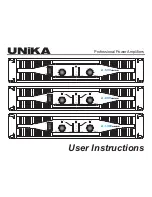
Low Power Outdoor (LPOD) Amplifier/Block Up Converter (BUC)
Revision 15
Appendix A
A–4
MN-LPOD
A.2.2 Serial-based Monitor and Control
•
Chapter 5. SERIAL INTERFACE OPERATION
•
Chapter 4. ETHERNET INTERFACE OPERATION
•
CLC-10 Comtech LPOD Controller User’s Guide (CEFD P/N MN-CLC10)
The EIA-232 Interface is not available for 1:1 Redundancy.
Figure A-2. Serial-based M&C using CEFD Kit KT-0020518
Serial-based remote M&C of any LPOD Standalone or 1:1 Redundancy application is available
through use of the optional
CLC-10 Handheld Terminal M&C Accessory Kit (CEFD Kit KT-
0020518)
. This kit provides you with on-site access to the LPOD’s serial remote-control interface.
For detailed information about this optional accessory, see the
CLC-10 Comtech LPOD
Controller User’s Guide (CEFD P/N MN-CLC10)
.
Serial command
ESW
determines system operation. Currently, 1:1 redundancy is supported with
either
transmit switching (Tx only)
or
treceive switching (Tx+Rx)
. If
ESW=1
(Tx Only) or
ESW=2
(Tx+Rx) is executed in both units, the system will be in Automatic Redundancy mode. In
this mode, if a fault is detected with the active (online) unit – either by loss of communications
between the backup (offline) and active units, or via the summary fault – the backup unit will
trigger the waveguide switch and, assuming the backup unit is not faulted, will become the active
unit. The backup unit will also poll the active unit at regular intervals in an attempt to maintain
configuration compatibility with the active unit; this ensures that, should a fault occur, the backup
unit is configured exactly the same as the active unit.
















































